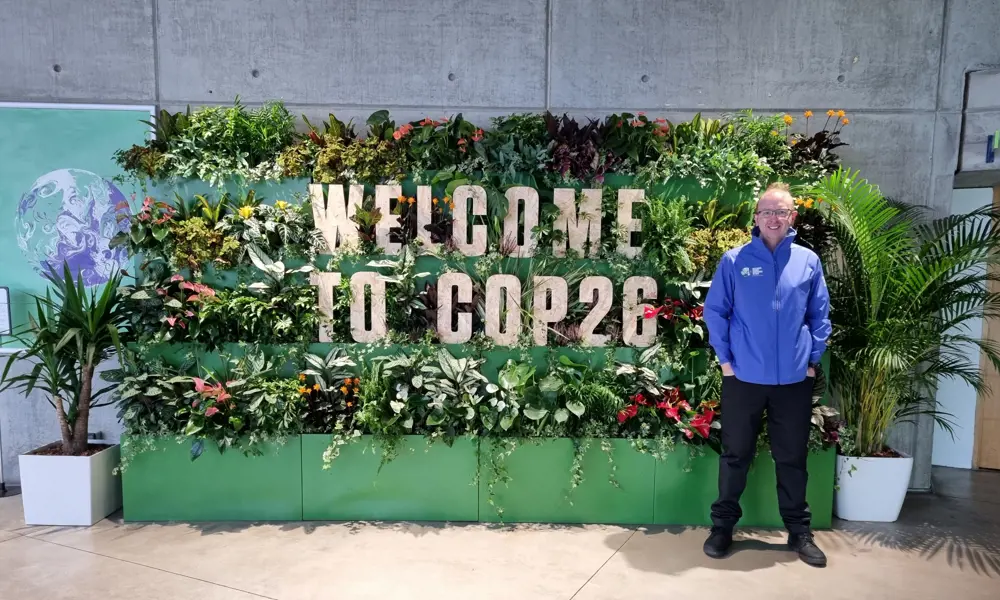
Q&A: Mark Goudie
Why did you become interested in science and engineering?
I never planned to be an engineer. My high school teachers encouraged me to study law, and I would have followed that career path had I not encountered the Year in Industry programme. As well as providing additional qualifications, this programme also allowed me to get engineering experience first-hand, and showed me the possibilities of a long-term career in the energy sector.
This experience also helped me understand what engineering was for me. It is the means to solve problems and help people. Engineers keep our infrastructure intact, our transportation networks moving, our lights on, and our clean water running. In the end, I left law behind and studied electrical and mechanical engineering at the University of Strathclyde.
Engineering is the means to solve problems and help people. Engineers keep our infrastructure intact, our transportation networks moving, our lights on, and our clean water running.
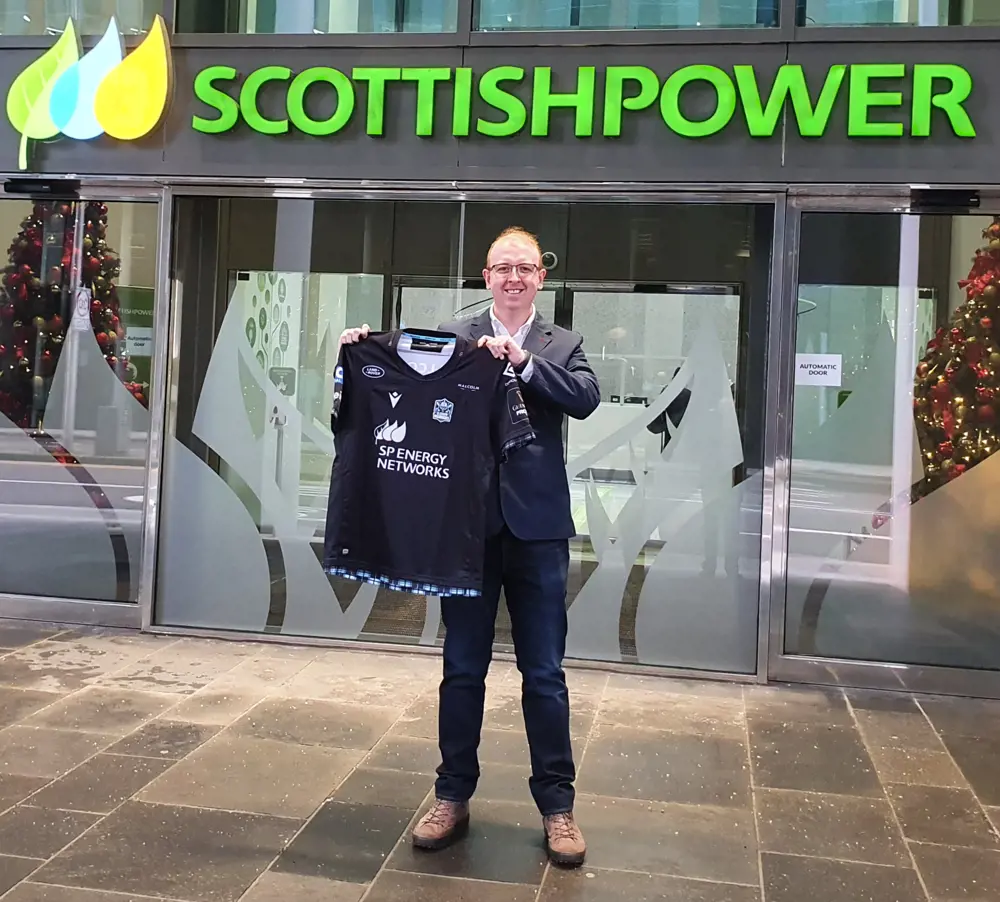
How did you get to where you are now?
My inspiration to work in the energy sector came directly from my Year in Industry with EDF Energy, where I was working on nuclear power stations across the UK. Following my Year in Industry, and during my degree, I was sponsored through the IET Power Academy programme with Atkins (one of the UK’s largest engineering consultancies).
This scholarship financially supported me during my degree and gave me life-changing work experience every summer, with my first placement in London during the 2012 Olympics. It also opened the door to volunteering for the IET, which I still do today.
I eventually joined Atkins as a graduate engineer, and it gave me the chance to work across the entire energy sector: from solar power to offshore wind, electrical networks to nuclear power. During my time at Atkins, I was helping both private and public sector organisations to adapt to changing market conditions, develop their designs and deliver their projects.
I also continued to develop an energy storage system that I developed in my final year at university, wind energy reservoir storage (WERS). This was designed to address some of the challenges of oil and gas decommissioning and the intermittency of renewables.
What has been your biggest achievement to date?
I’ll have to go with getting fellowship (of the IET) at 28 – was a real career highlight for me. It’s one of those things where you’re told, “Are you a Fellow? Well, why aren’t you a Fellow?” because of the things [I] was doing. And there’s often this perceived age barrier but it’s about a competency framework just like anything else. So I decided to continue doing what I was doing, continue volunteering, got Chartership and then six months later, got Fellowship off the back of it.
What is your favourite thing about being an engineer?
Since 2020, I have been lucky enough to work for SP Energy Networks (a UK transmission and distribution network operator), on the future operation of the electricity network as a key enabler for the transition to net zero.
We all use energy in our everyday lives, whether it is electricity to charge our devices and power our lights, gas to heat our homes or fuel for transport. The traditional energy sources that we use are undergoing significant change, with an uptick in renewable energy generation, electric vehicle use and electrified heating systems.
Electrifying our heating and transport systems will require new investment, new solutions and new ways of working to support people and communities on their decarbonisation journey.
These are just a few of the transformations we are facing today – making this an exciting time for engineers to change the way we generate, access, and consume energy.
For me, day-to-day, it's about solving some of the bigger challenges, like electrical infrastructure and how we transition that for large scale electric vehicle deployment and the electrification of heat.
Quick fire facts
Age:
31
Qualifications:
Master's in electrical and mechanical engineering from the University of Strathclyde, Chartership with the IET
Biggest engineering inspiration:
It has to be anything to do with NASA and space. I think the space race and space programmes just have a way of capturing the imagination in an engineering context that's very, very difficult to compare to. (Definitely didn't buy an Apollo 11 rocket as a Lego set as I turned thirty…)
Most-used technology:
Smartphone, with Microsoft Excel in second place.
Three words that describe you:
Engineer, Inventor, Mentor
What does a typical day involve for you?
In my role today, a lot of it’s management of others. So it’s making sure that teams are delivering what they need to deliver, that people are developing, that they're getting satisfaction out of the work that they're doing, but also keeping an eye on things like training and wellbeing. But for me, day-to-day, it's about solving some of the bigger challenges, like electrical infrastructure and how we transition that for large scale electric vehicle deployment and the electrification of heat.
That involves working with internal teams and external teams to try and come up with coordinated approaches to some of the big net zero problems that we're facing.
What would be your advice to young people looking to pursue a career in engineering?
- Plan your today, yesterday: Plans and lists are really satisfying and with the ever-changing day to day demands on your time, it is easy to not achieve what you set out to do. Taking five minutes at the end of your day to plan what you need to do for the next day will help focus your attention on what you need to achieve.
- Get involved: Some of the biggest growth opportunities come from getting fully involved in work, being flexible to opportunities and thinking about how else you can get involved in the wider profession. This could be internal initiatives in your company, volunteering for your professional institution and outreach work. Throughout my career, I’ve always been an active volunteer and believe that current engineers have a duty to help those following in their footsteps. For that reason, I would encourage all engineers to find the time to volunteer for their professional institutions and STEM organisations, like the QEPrize Ambassador Network, to help potential students and apprentices understand the opportunities that a career in engineering can provide.
- Do good work and don't plan too far ahead: Reputations take a lifetime to build, and getting a reputation for doing good work will pay dividends in the future. It is also important to have a plan that's not fixed. Fixed plans can blind you to opportunities in the here and now. And it is those opportunities that can open doors you never knew existed.
What’s next for you?
I've only just started my current job as the Whole System Manager for SP Energy Networks. So, for me it's really just making sure that gets delivered, embedded into the business, in terms of looking making sure that net zero targets are aligned and that we're delivering for customers and communities. So for me, I think what's next is actually just, you know, rolling up my sleeves and getting involved in this job.
Keep up-to-date with Ingenia for free
SubscribeRelated content
Energy
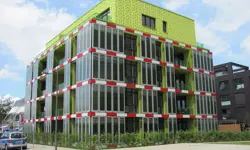
Algae-powered architecture
An apartment block in Hamburg in Germany has been built that uses microalgae placed within its façade to generate heat and biomass. Jan Wurm, an associate director at Arup, was one of the chief designers of the energy system. He talked about the concept, execution and results from the world’s first photobioreactor.
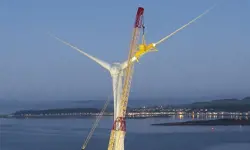
Digital hydraulics for wind energy and beyond
Research that has helped change the technology for harnessing wind energy has many other applications. The digital hydraulics system devised by Artemis Intelligent Power has received many accolades, the latest being the winner of the 2015 MacRobert Award.
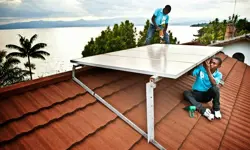
New energy pioneers
London-based BBOXX supplies solar-powered battery boxes to customers in developing countries. Their remote monitoring and battery management system was one of the winners of the 2015 Bloomberg New Energy Finance Award.
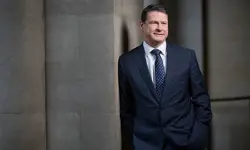
Energy with connections
When Steve Holliday FREng moved from the oil industry into energy distribution, the sector was seen as staid. In reality, during his years at National Grid, the sector became increasingly important as the need to tackle climate change led to a transformation in the UK’s energy mix.
Other content from Ingenia
Quick read

- Environment & sustainability
- Opinion
A young engineer’s perspective on the good, the bad and the ugly of COP27

- Environment & sustainability
- Issue 95
How do we pay for net zero technologies?
Quick read

- Transport
- Mechanical
- How I got here
Electrifying trains and STEMAZING outreach

- Civil & structural
- Environment & sustainability
- Issue 95